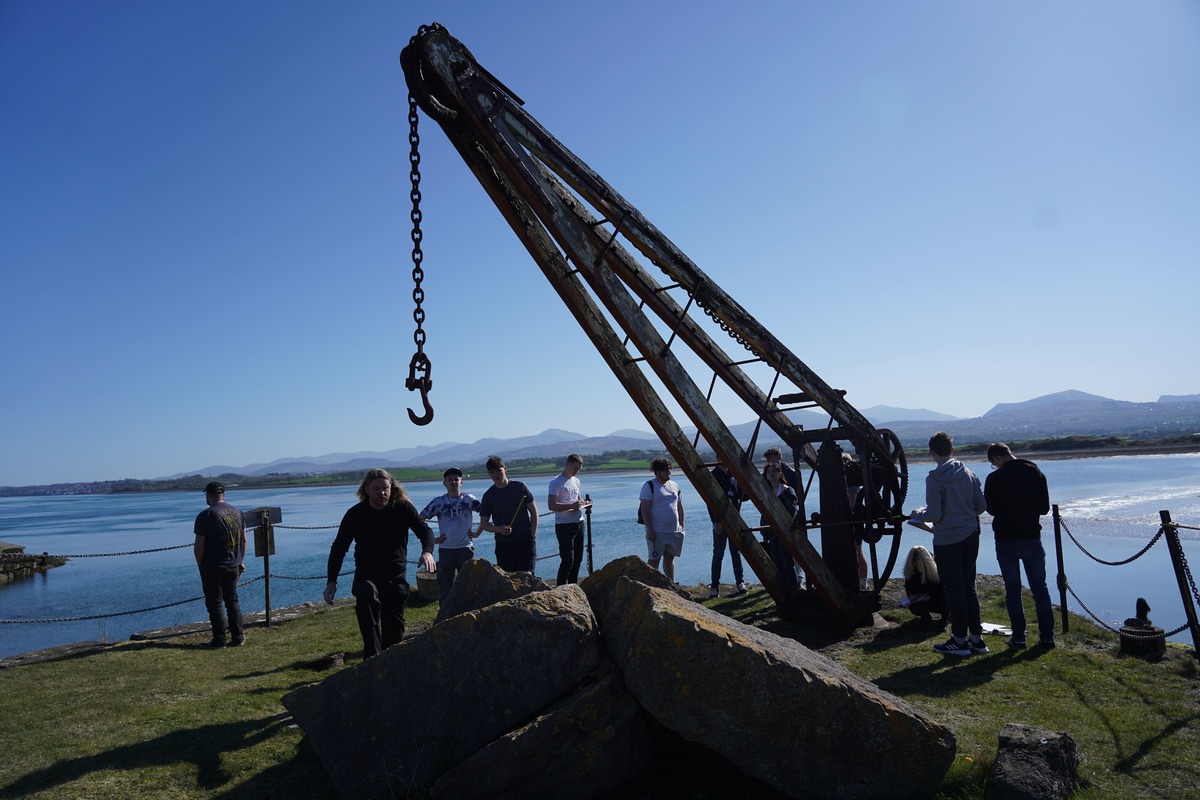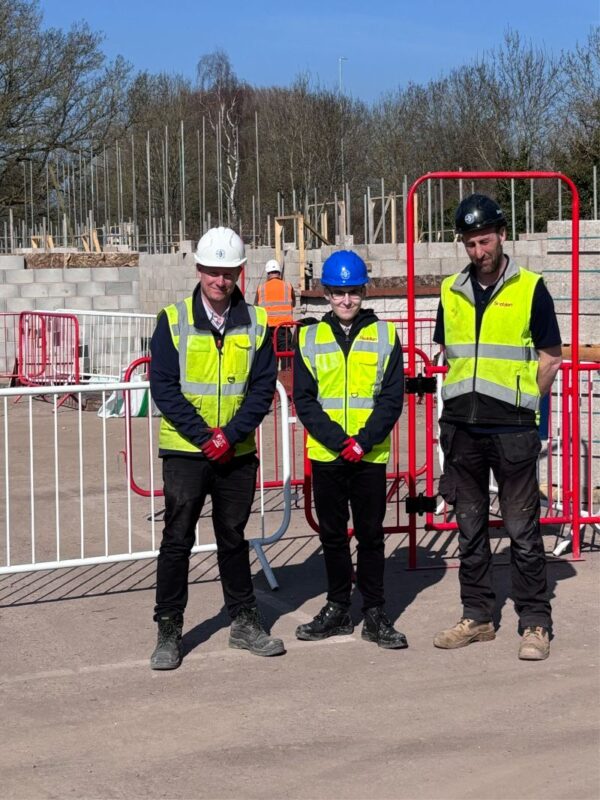The Education System Must Prepare Schoolchildren for Lifelong Learning and Career Changes

In this article, Neil explains why, in the face of the wave of new technology, the education system needs to reform, and fast, to be fit for purpose.
The Days of a Job for Life Are Well and Truly Over
A couple of years ago, there was a big splash in the papers when Lucy Kellaway at 58 changed career from being a top journalist to becoming a teacher. It was a ‘story’ because this behaviour was unusual; most people might switch jobs a few times, but converting to a wholly different career was unusual. Sensing that there might be a trend developing, she even created a charity, Now Teach, to support other people in the same career-change predicament.
Lucy’s articles got me thinking about how ‘all things work-related’ has evolved from previous generations. Back in the day when one of the ‘the silent generation’ joined The Bank (or wherever) straight from school, they often held a ‘job for life’ within the organisation and then spent their working life with that one employer, ticking off the days till retirement with the promise of a juicy pension.
As Kellaway explains, it was not uncommon to make a “small change” of job-hopping, like when she “moved from one school to another”, but only a few people made the “big change” of career by “swapping newsroom for the classroom”. In a quick straw poll of baby-boomer friends and ex-colleagues, I found that most had followed similar paths of around 2 careers per working life and I can’t help but feel that this number is set to increase for younger people.
The days of one vocation over a lifetime have all but disappeared and young people about to embark on the employment journey need to be aware of the implications of this; for them the future will be vastly different.
Current Jobs Are Disappearing and Degrading Fast
It has been predicted that up to 300 million jobs worldwide could be “lost or degraded” in the imminent new tech era and around 83 million positions worldwide will be “eradicated” by as soon as 2027. The fastest-declining roles at risk of extinction today by technology and digitalisation are: clerical or secretarial roles, like bank clerks and tellers, post office clerks, cashiers and ticket clerks; and administrative roles, like data entry and basic accounting clerks. Oh, did I mention clerks? And, also, positions in traditional security, factories and commerce.
According to career coach, Caroline Castrillon: “Lifetime employment at a single job is largely a thing of the past.” She goes on to say that ‘non-linear’ careers are likely to become more accepted by employers and companies will expect employees to be flexible and adaptable, “leveraging your transferable skills and stepping outside your comfort zone.” There is a trend for companies to embrace skills-based hiring.
“Every disadvantage has its advantage”: Cruyff
It’s not all despondency however; while it is true that AI and automation are likely to transform the jobs market in the coming years, it is important to bear in mind that the advent of new technologies will also create new work opportunities that we cannot yet fully anticipate. In fact, Brynjolfsson and McAfee, in the Second Machine Age, argue that generative software is so dexterous that it is impossible to predict the applications in just a few years’ time. Large-scale and fast job growth is predicted in digital commerce and trade connected with AI and analysis. It is also expected that there will be high growth in specialist roles associated with machine operation in sectors like agriculture and technology and many millions of additional jobs in education, such as vocational, university and higher education teachers, as the drive for training, retraining, reskilling, upskilling and lifelong learning takes hold.
It is not surprising that many experts in the employment field believe that people in future will have substantially more career fluctuation. Young learners at school today should assume that they will have considerably more jobs and careers over their lifetimes. For example, Asheesh Advani of JA Worldwide has had a stab at predicting it; he believes that young people of today should expect to have at least 7 careers and 20 jobs over their lifetime. Whether he’s exactly right or not doesn’t matter; it’ll be a lot more than currently.
What impact will this have on young people at school and what should they do about it?
Well, it will be important for young people to focus on developing a range of skills that will prepare them for the future, regardless of what specific job or career they may pursue at any point in time.
What Skills Are Those?
The World Economic Forum (WEF) carries out surveys of employers and has determined those skills which are expected to be the most and least valued out of 26 core skills required by workers today; the priority for skills training over the next few years is:

The first two skills on the wish list above are ‘cognitive’, then the next three are ‘behavioural’, being about helping workers to adapt to disrupted workplaces. ‘Interpersonal’ skills like empathy and active listening and leadership and social influence feature strongly in the top ten.
It is interesting to note that the most highly valued skills are cognitive, behavioural and interpersonal; the so-called socio-emotional components and essence of being a human being. WEF proposes that employers will expect workers to have “socio-emotional skills related to self-efficacy and continuous learning”. ‘Self-efficacy’ is more commonly known as self-belief or self-confidence and is considered to be a ‘multiplier’; through visualisation and achieving goals the process makes all other skills possible to learn and master. All of these ingredients together form Emotional Intelligence or EQ. Building self-awareness around this should begin at school and this is what Kloodle, the digital skills and character platform, is designed to do.
To succeed in the non-linear careers of the future, people will need to constantly enhance these inherently human skills through reflection and learning, as well as the ability to teach and mentor others.
You’ll Have to Reinvent Yourself
McKinsey chipped-in to the decimation of jobs debate by claiming that up to 375 million people “may need to switch occupational categories and learn new skills.” This need for learning new skills is likely to be constant and, in the not-too-distant future of work, there are going to be a number of key themes dominating the employment landscape.
Firstly, people will have to be adaptable and have the ability to adjust to fast-changing environments. This will require a positive ‘I-can-do-this’ mindset. Employees will be responsible for their own career development, accumulating a wide range of skills, held together by problem-solving and critical thinking. In these fast-changing environments, there will be a cultural shift as workers will have to learn new advanced skills or upgrade to fill skills gaps.
And all of this needs to start at school. At Kloodle, we are seeing some children as young as 6 starting to build their awareness about their skills and character; a terrific foundational awareness which they can develop as they enter the world of employment.
Lifelong learning must become part of what employees and entrepreneurs of tomorrow do and schools must prepare young people for this. This means that training or upskilling initiatives should be highly valued and commonplace. Investment in training by companies enhances cross-role mobility, increases worker satisfaction and enhances productivity – hence, the anticipated boom in education and training. Numerous online courses will proliferate but trust will be a major issue so face-to-face human contact and strong brands will be essential.
Do The Hustle
Workers of tomorrow will need to be nimble, quick to learn, agile, adaptable and global to take advantage of opportunities. A trend which has already been observed is people developing a portfolio of career roles and diversified income streams. This is expected to become more common as the rise of the ‘side-hustle’ becomes more acceptable across society.
We Humans Have Been here before….At Least 3 Times
Headlines about job destruction can be quite shocking and young people must be worried about the future landscape of work. It is more than a crumb of comfort to know that we, the human race, have been here before. There have been three industrial revolutions over 250 years, involving the changes from an agrarian economy to mechanical production and railway transport, the introduction of electricity and mass production on assembly lines, and most recently the invention of computers and semi-conductors leading on to the internet. We are now entering into the Fourth Industrial Revolution: the world of AI and machine learning. We’ve experienced upheaval on a massive scale before, however, this time, the difference will be the speed of change, as well as the breadth and depth in new occupations and new industries which we don’t yet know anything about. It took the spindle, the symbol of the first industrial revolution, around 120 years to spread outside of Europe, future transformations will be almost instant, globally.
The Fourth Industrial Revolution

Source: IPUMAS USA, US Bureau of Labor Statistics, McKinsey & Company
The graph above is a plot showing how the share of total employment by sector in the economy of the US has changed over the period between 1850 and 2020. The impact of seminal technological advances can be seen as manpower in certain sectors underwent seismic shifts. Although economies were affected by sweeping transformations, “the will of man was the determining factor” and people were able to adapt over time, from generation to generation, to gain employment in new growth areas where opportunities opened up. However,one of the major problems is “exacerbated inequality”; there will be considerable wealth creation which develops during these periods, and that wealth will be concentrated in a few private entities and individuals, magnifying wealth inequality. This will only be addressed if all young people at school are equipped with the right tools and attitudes to give them a fair chance of participating in the economic opportunities.
A New Education for a New Epoch
We have witnessed from the previous three industrial revolutions that humans have an incredible capacity for adaptation and ingenuity. We are now entering the seminal Fourth Industrial Revolution and technological advances are happening rapidly; computers are being tasked with routine and repetitive tasks, meaning workers should focus on value-added activities like decision-making, problem-solving, communication, and creative thinking. The world of work is adjusting to a new paradigm.
The children of today, the workers of tomorrow, can no longer plan for a stable career but must embrace career adaptability, develop strong EQ, and constantly enhance their employability through the lifelong learning of new skills and character for over half of the world’s young people will end up in jobs that haven’t been created yet. At Kloodle we have designed a digital infrastructure which connects students through technology with skill-development opportunities to unlock individual student potential and build skills which can bridge the talent gap in the future job market. To support this, education systems should be correlated with workplace and need to adapt to keep up or risk being unfit for purpose.
FE News on the go…
Welcome to FE News on the go, the podcast that delivers exclusive articles from the world of further education straight to your ears.
We are experimenting with Artificial Intelligence to make our exclusive articles even more accessible while also automating the process for our team of project managers.
In each episode, our thought leaders and sector influencers will delve into the most pressing issues facing the FE sector, offering their insights and analysis on the latest news, trends, and developments.












Responses